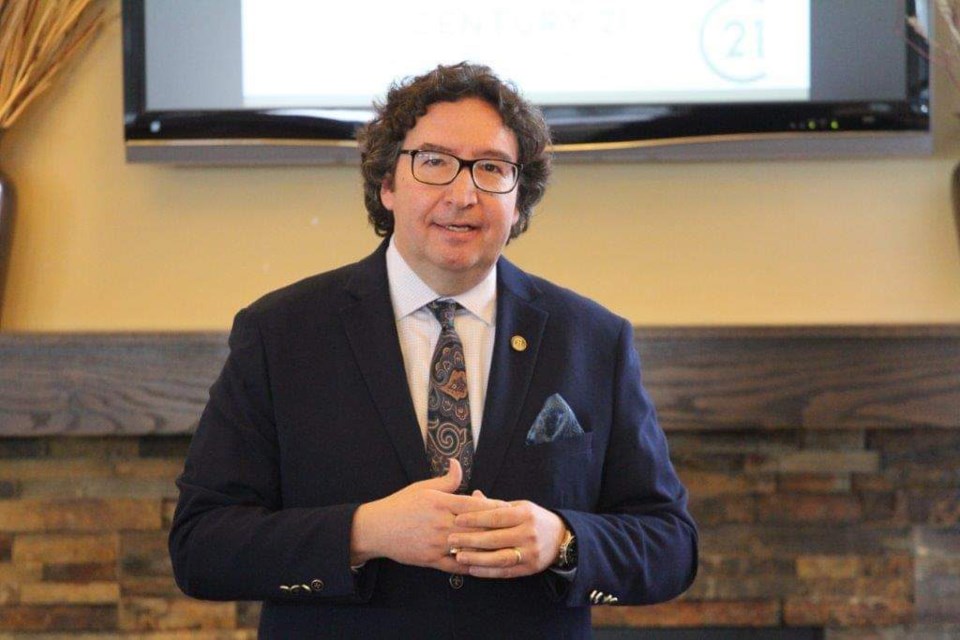
The Niagara Peninsula Conservation Authority is dealing with some tough issues well-documented in the press and discussed by the public, but although residents might be aware of the controversies of governance and budget problems, how many understand the scope and significance of the work of the agency?
Gary Zalepa, Niagara-on-the Lake’s regional representative on the interim NPCA board, says he wonders whether residents understand the importance of the agency’s mandate, which includes floodplain management.
“Even after six years on town council, I didn’t know the level of detail in the work of the NPCA. Perhaps that is something we can improve. It’s important work.”
He is learning, he says.
“I’ve had two recent calls from residents about Four Mile Creek, and one about Two Mile Creek, behind The Old Winery. They were concerned about the number of fallen trees and branches clogging the waterways, and possibly affecting fish habitat. That falls within the watershed management mandate of the NPCA.”
He says he made some calls, and the NPCA sent staff to look at the creeks, evaluating them to ensure there were no flooding issues and the creeks were fully functional. As long as the creeks are flowing freely, fish habitat is protected, he adds. “That’s some of the important work of the NPCA in NOTL.”
Nobody ever heard much about the work of the NPCA as long as it was doing its job, “and then some people found it wasn’t. It’s a delicate balance of economic development and environmental management.”
The NPCA has recently come under siege from the Province — Premier Doug Ford has announced funding cuts for the services provided by the local agency and others across the province. The provincial transfers to the NPCA are expected to be about $90,000, about half of what the agency was counting on for its floodplain management.
“I’ve asked staff how the funding cuts can impact us. We’re not sure at this point,” Zalepa says, “but cutting staff will have an impact. Fewer staff means we’ll probably not be as responsive, when because of climate change, we’re already taxed. As an example, a 50-year storm might not be 50 years any more. We can have water issues, and they can be a massive problem.”
The NPCA tests water quality at its source, he says, “ensuring it’s healthy. The Region tests water once it’s in our system, but the NPCA is responsible for testing to ensure water quality when it enters the system.”
An auditor general’s report, which identified several problems with the NPCA, included a “D grade for watershed management. That speaks to the lack of resources,” he says, “to me building a case to say people should be concerned.”
The NPCA has also received notice a local advocacy group, A Better Niagara, wants the number of board representatives settled in court. The dispute began during the closing days of the last term of regional council.
“While we realize the NPCA board makeup is a top priority to ABN, the governance issue is only one of the many important tasks that the board and the CAO have been working on to put this important organization back on track,” says a press release from the agency.
The board has made “various achievements in governance and internal organizational structure,” to lead the conservation authority in a more “transparent and accountable path,” including the hiring of an interim CAO, and continuing dialogue with the community.
Since the arrival of interim CAO Gayle Wood, the organization has engaged members of the media and various local community and nature clubs, including Friends of One Mile Creek and The Harmony Group in NOTL, so their needs and concerns are heard, the press release continues. “More meetings have been scheduled in the next quarter to ensure that the organization continues its open dialogue with every community group and sector in the three municipalities it covers.”
“I understand that communications and open dialogue have been a contentious issue in the past,” says Wood. “I have worked diligently to ensure that our lines of communication are wide open.”
Zalepa says he looks forward to the time when NOTL can advertise and appoint a community member with the appropriate skills to take his place on the board, which is the goal for future governance.
In the meantime, the issue of the number of representatives should not be up to the agency to resolve, he says.
“We’re functioning really well together. Solving this needs to lie with the governments of the municipalities, not with the board of directors. We’re hoping somebody can make it happen soon.”
As a regional councillor, he’s happy to have that conversation at the Region, he says.
“We want the issue at the forefront. I can’t wait to get the process going, and to get someone from the NOTL community who is qualified to serve on the board. Sooner rather than later would be good.”